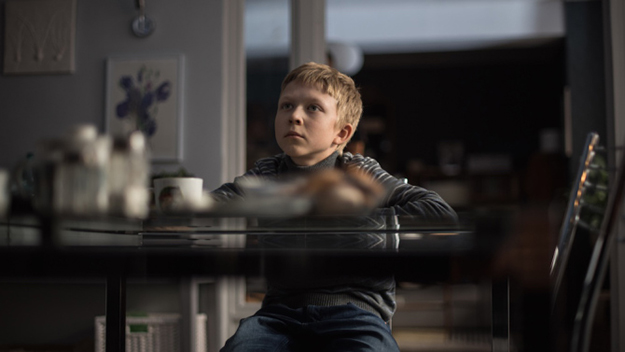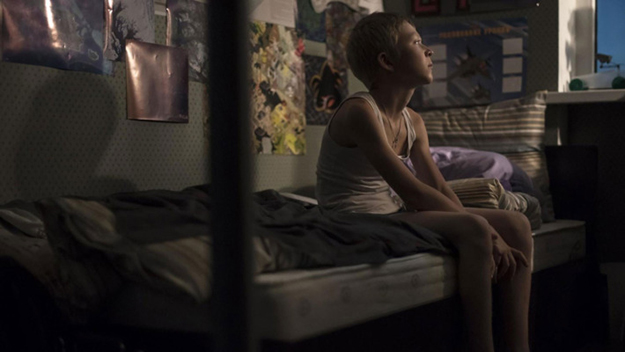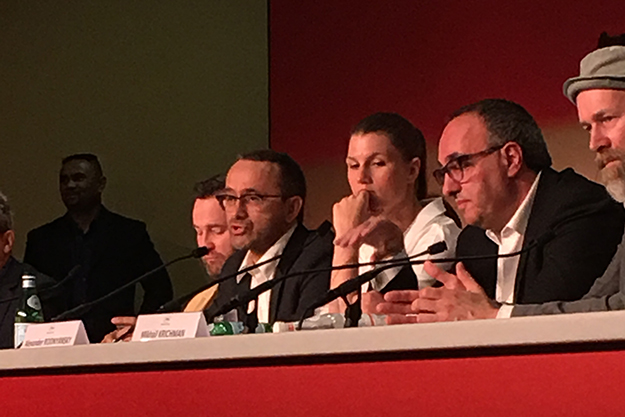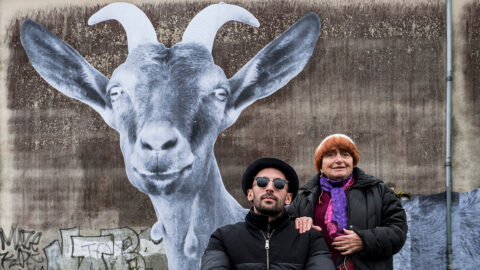Cannes Report #2: Loveless

Loveless
Strict security, bright sunshine, bleak stories, black humor, and the ongoing debate about streaming cinema are some of the threads woven through the first half of the 70th edition of Cannes. We’re at the midpoint, and half of the competition films have screened, with titles by Robin Campillo, Michael Haneke, Todd Haynes, Bong Joon-ho, Andrey Zvyagintsev, and Yorgos Lanthimos standing out.
Among these, Zvyagintsev’s Loveless proved to be one of the most distinctive. Three years ago, the last time the Russian filmmaker was here, he garnered widespread attention for Leviathan, his acclaimed, partially state-funded tale of corruption that was seen as challenging Vladimir Putin’s government and which won the best screenplay award. Now he’s back with his independently produced follow-up that features more oblique, but no less withering, commentary on his home country. Set in modern-day Russia, Loveless is the story of a couple navigating a long-deteriorated marriage. Each has moved on to a new partner, yet they seem unsure about what to do with their preteen son—whose birth 12 years earlier forced them to marry in the first place.
Early in the film, after a vicious argument, the boy’s parents, preparing to move out of their apartment and into new lives, abruptly leave a room and slam a door behind them. The audience sees what they don’t—their young son was hiding behind the door as they screamed and debated about what to do with him. The harrowing effect of his parents’ impending divorce is revealed as an inaudible, frozen wail, the child’s mouth open, tears streaming down his face; it’s a moment that will linger in the viewers’ minds for the rest of the film. The kid soon goes missing and, in the gripping procedural that follows, Loveless depicts a corrupt, cold, and self-obsessed society, indifferent to its own future.

Loveless
After Leviathan, Zvyagintsev had a number of scripts that were ready to go, but then he heard the story of a couple whose son went missing while they were in the midst of divorce proceedings. This time, however, he would need to find new sources of financial support to make the film, because his previous one—and the international attention it received—instigated a state ban on funding movies critical of the Russian society and government. “The government of Russia disliked Leviathan,” said producer Alexander Rodnyansky at the film’s press conference. “We didn’t need to embarrass them again and decided to do the movie on our own.”
Rodnyansky, who also runs the Kinotavr Open Russian film festival in the resort town of Sochi, explained that Loveless is a coproduction of international sales company Wild Bunch, also with funding from France, Germany, and Belgium. He added that he sees an increase in other Russian filmmakers pursuing the same strategy of avoiding government funding (and censorship), and that nine of the 14 titles that screened in competition at the recent edition of Kinotavr were financed without state involvement.
One journalist at the press conference asked Zvyagintsev if he was commenting on relations between Russia and Ukraine, as news reports seen on the family’s television in Loveless depict the conflict. “I believe that the images you see on TV are satirical,” Zvyagintsev said. “I tried to create all of this atmosphere. I view things on a metaphysical level. You also have the loss of any normal relationship with our closest neighbor, Ukraine.”

Director Andrey Zvyagintsev (left) and Alexander Rodnyansky (right) in Cannes. Photo by Eugene Hernandez
Zvyagintsev admitted that his new film carries on some familiar themes, but he said he’s also trying to cast a wider net. “I think that if you saw Leviathan you know where I stand vis-à-vis the powers that be. This film follows on what you see in that film.” Rodnyansky quickly jumped in, adding, “This film is capturing Russian life and Russian anguish, but I believe it is universal. He is investigating the human condition with no borders.”







